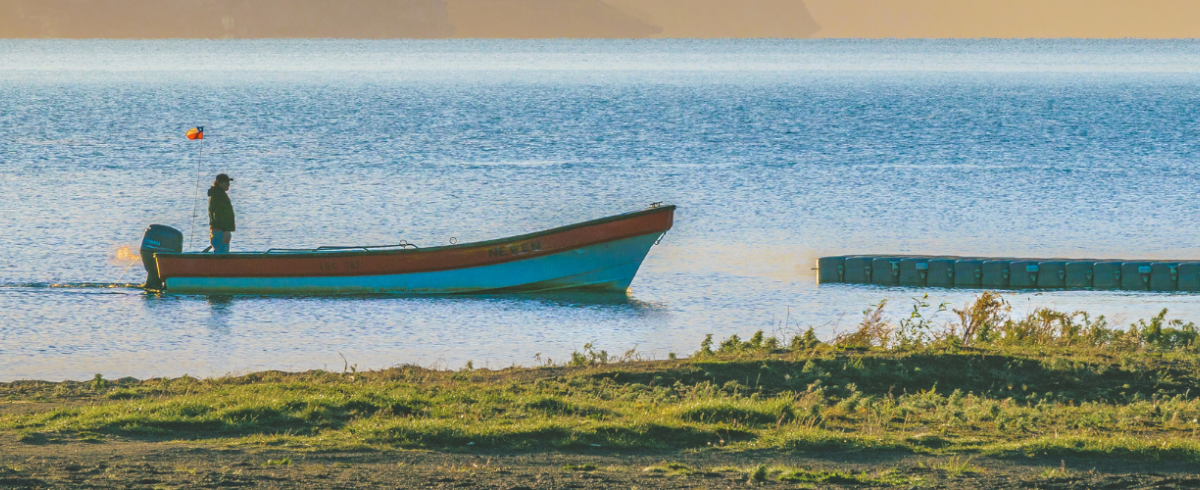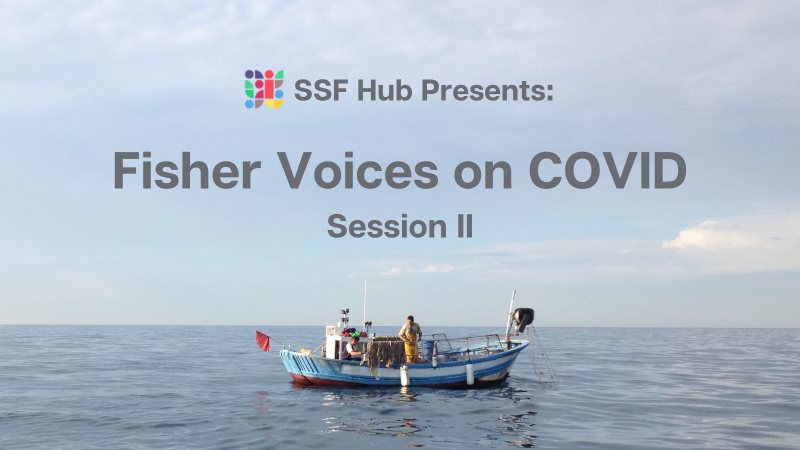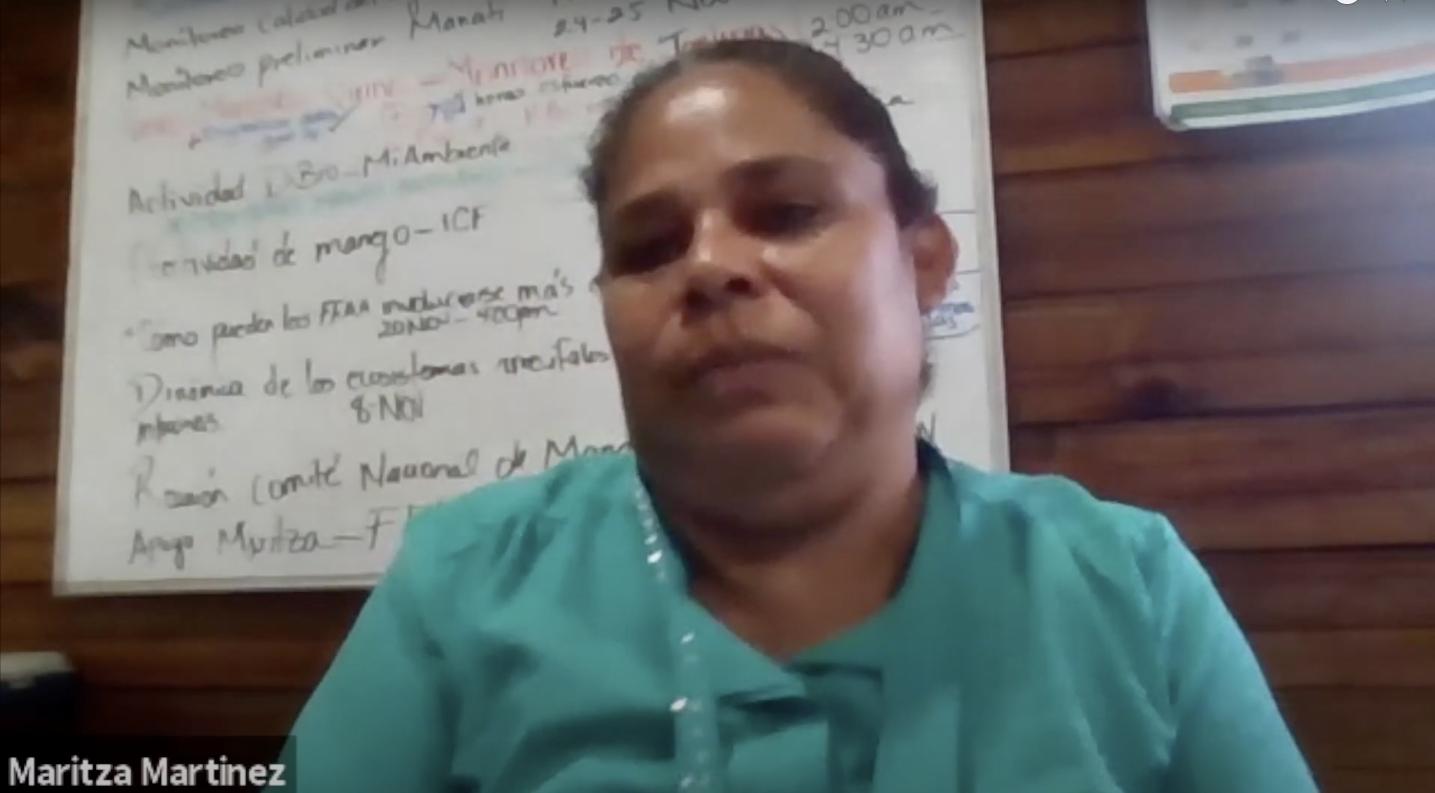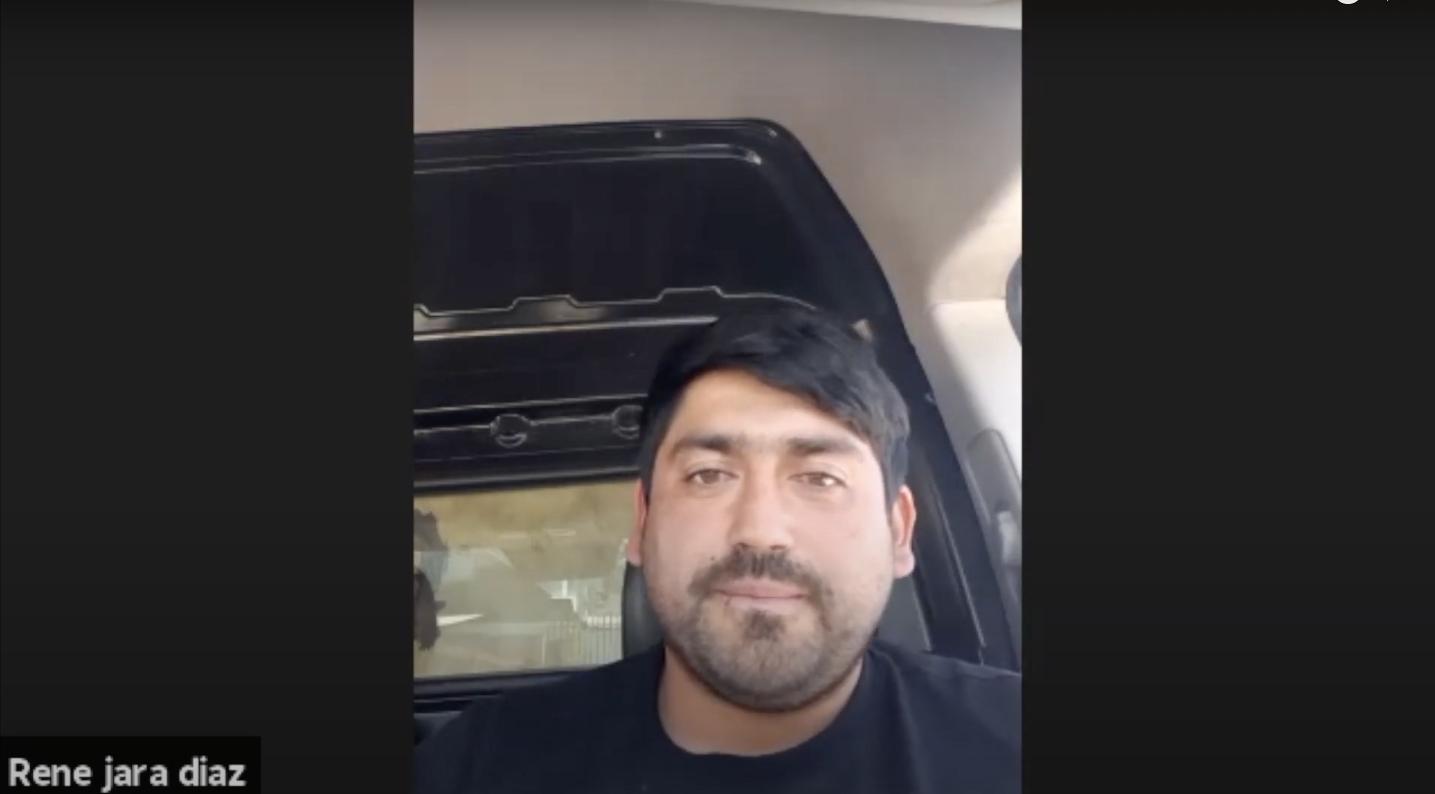
December 2021

On November 16, 2021, the SSF Hub hosted Session II of its Fisher Voices on COVID-19 webinar series. Session II focused on stories from fisher organizations in Latin America and North America, told by fishers and organization representatives, specifically about their experiences and the challenges they are facing in their businesses and supply-chains due to the COVID-19 pandemic. Read more about Session II and the speakers below.
Watch the recording of the webinar here.
Share your thoughts and reactions on the follow up discussion here.
This webinar was preceded by SSF Hub Presents: Fisher Voices on COVID, Session I on September 15, 2021.
Read the highlight story about Session I here.
Session II Summary
The webinar began with a video recap, produced in partnership with World Wildlife Fund (WWF), of Session I. During the first session, fishers and fishing organization representatives explained the issues that they and their communities are facing due to the COVID-19 pandemic – such as the inability to go fishing for income and subsistence, lack of funding and financial support from their governments, and disruption in their supply-chains.
Session II focused on these business and market chain disruptions, and explored how fishers and their intermediaries have worked to adapt and cope with these difficult conditions brought on by the pandemic.
The panel discussion began with Maritza Martinez, president of the Asociación de Pescadores La Rosita, Cuero y Salado (APROCUS) in Honduras. She shared that the lack of transportation by train is the major challenge her community is facing during the pandemic. It has been difficult to market and sell their catch and the people in her community have resorted to using “burras” — carts pushed and pulled by people — in order to come and go within their area. The lack of train transportation has been especially difficult for Maritza, not only for her Association, but for her family as well. Her family’s home burned and they lost most of their possessions. With limited access to social securities and slow transportation to deliver the necessary materials, the rebuilding process has been slow.
|
Image

|
Image

|
Maria Arteaga is a program facilitator for Fisher's Roundtable, led by Don Herman*, a group that brings together fishers from 18 communities in Honduras. Maria emphasized Maritza’s experiences in Honduras, highlighting that small-scale fishers have been experiencing economic hardships due to the difficulties in selling their catch brought on by market disruption from the pandemic. The fishers found temporary support through the establishment of a community restaurant, run by the women of Cuero y Salado, who purchase their catch. In the meantime, the Association of Fishers is researching long-term solutions, such as participatory market systems development, to strengthen value-chains and build community resilience.
Ben Martens, Executive Director of the Maine Coast Fishermen’s Association (MCFA), presented solutions adopted by fishermen in Maine, United States. MCFA focuses its work on policies and research projects that support sustainable fisheries and enhancing the capacities of fishermen who are building businesses and marketing their catch. However, with the arrival of COVID-19, MCFA had to pivot its work to address the newfound disruptions in global and local supply-chains. Maine communities suddenly found that meat products were no longer available and people started to seek out fresh fish as replacements.
MCFA worked to connect fishermen directly with the consumers seeking their products; however, fishermen were still unable to sell enough of their catch to make it economically viable for the long-term. For many groundfish fishermen, their main clients were restaurants, which were no longer open due to lock-down restrictions. As the pandemic continued, food insecurity rose throughout Maine – MCFA developed an idea to help fishermen sell their catch while simultaneously providing food for communities in need. They initiated Fishermen Feeding Mainers – a program that enabled the organization to purchase fish from fishermen and redirect it to schools and communities that were in need of protein.
Tracy Sylvester, a wild salmon fisherman and business owner, based out of Alaska and Massachusetts, United States, shared the importance of cooperative membership during the pandemic. The small cooperative, based in Alaska, was able to maintain its operations and avoid outbreaks and shutdown; however, the capacity of the cooperative was impacted by dry ice shortages and disruptions in shipping and transportation. Tracy was able to keep her operation afloat by relying on small shipments from Alaska, and personally drove door-to-door to make deliveries of seafood to her customers. Tracy hopes that this type of small-scale operation will demonstrate the investments in local food systems create greater security and resiliency in the face of global challenges.
"Yo tengo una experiencia muy grande acerca de esto, lo que ha pasado con el COVID-19, acerca también de mi casa que se me fue quemada y por medio, no tuvimos el transporte del tren. No quitaron la ayuda a nosotros que nos iban a ayudar por medio del transporte, nosotros perdimos la ayuda y ahora nos está costando demasiado poder hacer despacio nuestra casa." - Maritza Martinez
"I have a very great experience with this, what has happened with COVID-19, with my house that was burned and in between, we did not have the train transportation. They took away the help from us that they were going to provide by means of transportation, we lost the help and now it is costing us too much for us to be able to slowly rebuild our house." - Maritza Martinez
Paula Leiva is the Director of MiCaleta, an e-commerce platform based in Chile, that sells responsibly and legally caught seafood products. Their platform is brand new and launched in March 2021, one year into the global pandemic. MiCaleta works closely with small-scale fishing organizations and fisher associations to develop a market for people who prefer products from small-scale fisheries, but over time this has posed challenges with maintaining supply since these groups have small operations. MiCaleta has adapted their “catalogue” in order to work with small-scale fishers, such as Rene, and are receiving positive feedback from consumers on the quality of their products and distribution. Paula and MiCaleta hope to continue generating a positive and beneficial impact for local fishers and communities in Chile by working and adapting together.
Reńe Jara is a fisher from Duao, Chile. He is a founding member of the Duao Fishermen's Cooperative (CoopDuao), and sells fish through MiCaleta. The pandemic initially brought fear to small-scale fishing communities because of the uncertainty of what was happening and how to overcome it. Reńe and his fellow fishers wondered if they would be able to keep working? Would fishers still be able to market and sell their catch? Despite these fears, the pandemic provided an opportunity for fishing communities to learn to work together to commercialize their product. Prior to the pandemic, Rene hoped to have a more complete product chain and sell to restaurants, hotels, etc. but the pandemic shut these down. Support from MiCaleta helped strengthen partnerships between small-scale fishers and consumers, enabling them to sell their catch in distinct locations and directly to consumers.
All of the speakers are working to find a silver lining from the challenges of the pandemic – fishermen are adopting new and innovative ways of distributing seafood to maintain livelihoods and businesses, but also as a way to help and feed their local communities. Non-profits, cooperatives, and small-scale fishing associations are proving to be a lifeline by connecting fishermen with new consumers and markets. However, the pandemic has made it clear that small-scale fishers need greater recognition and support to protect and secure their livelihoods, now and in the face of future challenges.
The webinar was moderated by Cristina Pita (International Institute for Environment and Development) and Elena Finkbeiner (Conservation International). The webinar was hosted in partnership with the Conservation Alliance for Seafood Solutions.
*Don Herman was originally scheduled to speak; however, he was unable to join due to electrical outages in Honduras at the time of the webinar.
###
The "SSF Hub Presents: Fisher Voices" webinar series will continue in 2022, as a way to facilitate the exchange of stories, best practices, and actions needed to protect the lives and livelihoods of small-scale fishers worldwide. These webinars will highlight important topics, voiced by small-scale fishers and fishworkers, to build increased awareness of the issues facing small-scale fishing communities and drive action to support them.
Learn more about the SSF Hub Presents: Fisher Voices, IYAFA 2022 Webinar Series here.
Speaker Bios and Information
To learn more about our speakers and the communities and organizations that they represent, please read their bios and browse the following links.
Martiza Martinez | La Rosita, Honduras
Martiza is the president of the Asociación de Pescadores La Rosita, Cuero y Salado (APROCUS) in Honduras.
Maria Arteaga | Honduras
Maria Arteaga is a program facilitator for Fisher's Roundtable, a group that brings together fishers from 18 communities in Honduras.
Ben Martens | Maine, United States
Ben Martens is the Executive Director of Maine Coast Fishermen's Association (MCFA), and works with Maine's community-based fishermen to develop projects, policies, and ideas to strengthen Maine's fisheries. MCFA is an industry-led non-profit that works on behalf of the community-based fishermen of Maine. Their goal is to ensure that Maine's fishing communities can thrive today, tomorrow, and forever.
Maine Coast Fishermen’s Association (MCFA)
Fishermen Feeding Mainers
Tracy Sylvester | Alaska, United States
Co-founder of Wooden Island Wild, Tracy has been working in fisheries science and sustainable fishing in Alaska for over a decade. She holds a degree in Fisheries Biology and Management from the University of Vermont’s Rubenstein School of Environment and Natural Resources.
Wooden Island Wild
Wooden Island Wild - Facebook
Paula Leiva | Duao, Chile
Paula is the head of Mi Caleta. Mi Caleta is a Foundation that connects Artisan Fishing communities with citizens. They work collaboratively to offer quality seafood at fair prices.
Mi Caleta
Mi Caleta - Facebook
Reńe Jara | Duao, Chile
René is a fisher from Duao, Chile. Rene is a founding member of the Duao Fishermen's Cooperative (COOPDUAO), and adds value to his fish through his own seafood processing plant.
This article is part of the SSF Highlights series of articles published regularly to the SSF Hub. To read previous SSF Highlights, follow this link.
